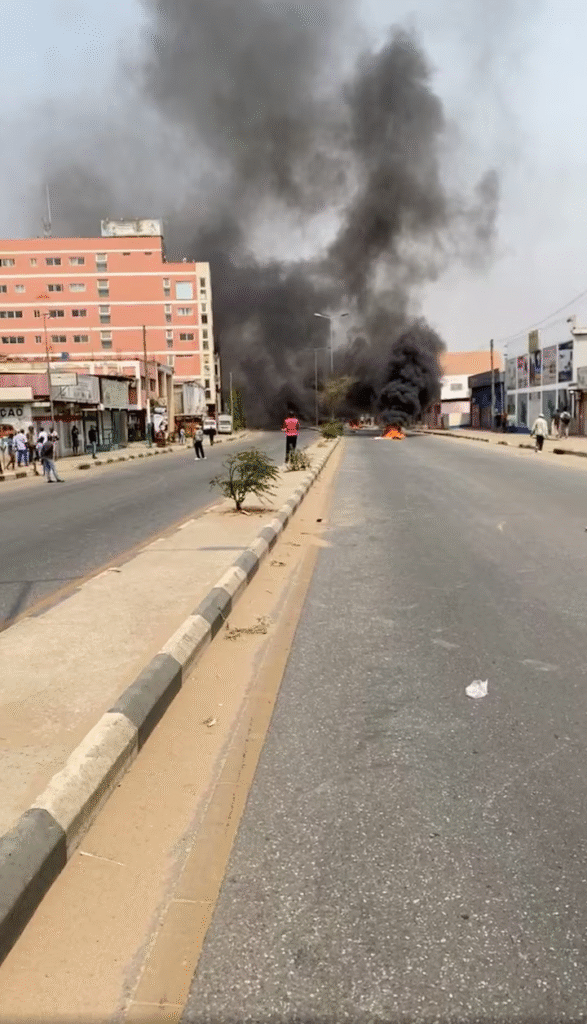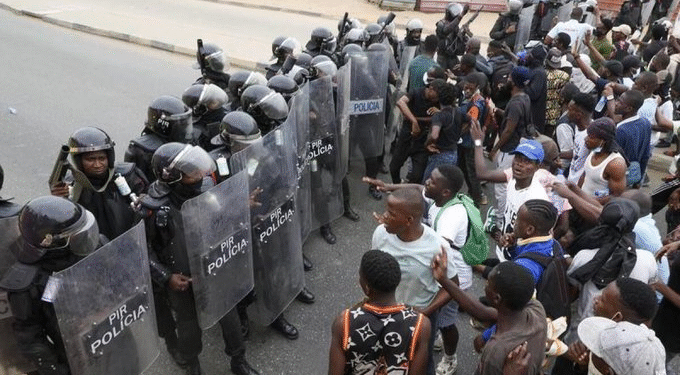Protests over a sharp increase in diesel prices turned violent in the Angolan capital on Monday, with reports of several fatalities and widespread unrest, according to local media.
The demonstrations began after the government raised diesel prices by one-third this month part of an ongoing effort to phase out fuel subsidies and stabilize the country’s public finances. The move, while economically strategic, sparked anger among commuters and transport workers already burdened by high living costs.
Public transport unions, particularly minibus taxi associations, responded by launching a three-day strike on Monday and increasing fares by as much as 50%, triggering widespread disruption in Luanda.

According to Novo Jornal, at least three people, including a police officer, were killed in the clashes. The police reportedly used tear gas, smoke grenades, and fired shots into the air in an attempt to disperse crowds and restore order.
Shops and businesses in parts of the capital were looted, police confirmed in a statement, adding that numerous arrests had been made, although no official figures were provided.

The unrest highlights the growing tension in the Southern African oil-producing nation as it attempts to wean itself off costly fuel subsidies, which Angola’s finance minister said made up about 4% of GDP in 2023. Officials have pledged to gradually phase out the subsidies to ease pressure on public finances.
This is not the first time Angola has witnessed deadly protests linked to fuel price hikes. A 2023 petrol price increase similarly led to violent demonstrations and casualties.
The government has yet to release an official death toll or comment on whether it will revisit its subsidy removal timeline in light of the latest violence.









